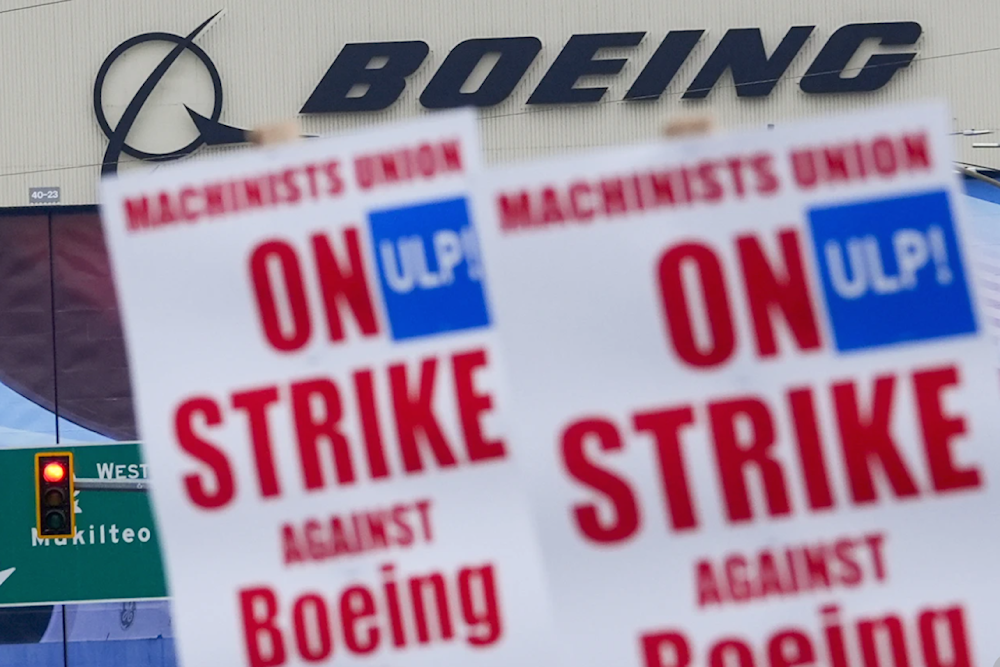Boeing needs to make 'significant changes':US Aviation chief
During a US House subcommittee session, lawmakers voiced their concern with Boeing's poor safety record.
-

Boeing workers wave picket signs as they strike after union members voted to reject a contract offer on September 15, 2024. (AP)
Boeing must make substantial reforms and modify its culture to enhance safety and production quality, according to US Federal Aviation Administration Administrator Michael Whitaker, who spoke before a House subcommittee on Tuesday.
"As a result of systemic production quality issues, Boeing must make significant changes to transform its quality system and ensure the right layers of safety are in place," Whitaker said. "There must be a shift in the company's safety culture to holistically address its systemic quality assurance and production issues."
During the session, lawmakers voiced their concern with Boeing's poor safety record. According to House Committee on Transportation and Infrastructure Chairman Sam Graves, US aviation has long been considered the gold standard, but recent accidents "have called that into question."
Boeing has faced several safety violations and criminal prosecutions in recent years.
In July, Boeing and the US government finalized a plea deal involving the planemaker admitting to conspiracy to defraud the United States. As part of the plea deal, Boeing will pay a fine set between $243.6 and $487 million and will be subject to oversight by an independent monitor for three years.
The two tragic crashes occurred in Indonesia in 2018 and Ethiopia in 2019, both linked to a flight-control system about which Boeing was accused of misleading regulators. In 2021, Boeing reached a $2.5 billion settlement that included the same $243.6 million fine and commitments to comply with specific conditions.
Boeing had claimed it had followed the provisions of the 2021 agreement. However, the firm has seen a string of safety mishaps in recent months, including an in-flight door panel burst on a 737 MAX 9 operated by Alaska Airlines.
Boeing whistleblower's suicide: 'no one can believe it,' attorney says
In March, John Barnett, a former Boeing employee who raised concerns about production issues, was found dead in an apparent suicide in South Carolina.
Barnett, a 32-year Boeing veteran, had voiced issues about safety problems, notably with the Boeing 787 Dreamliner. He was involved in a whistleblower retaliation case against Boeing at the time of his death.
The Charleston County coroner's office in South Carolina confirmed on Tuesday that the 62-year-old died from a self-inflicted gunshot wound. The Charleston City police are currently investigating the incident, with no further details provided by the coroner's office.
According to a statement from his attorneys, Robert Turkewitz and Brian Knowles, Barnett was in the midst of a deposition in an ongoing whistleblower retaliation case against Boeing.
"He was in very good spirits and really looking forward to putting this phase of his life behind him and moving on. We didn't see any indication he would take his own life. No one can believe it," they said.

 3 Min Read
3 Min Read








